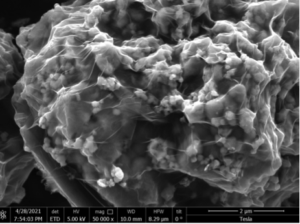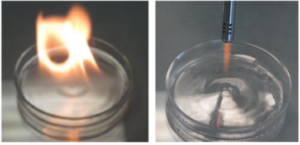Dayton, Ohio, January 20, 2022 – Global Graphene Group, Inc. (G3), an advanced materials and battery technology company located in Dayton, OH, is named as a GLOBAL TOP 100 INNOVATOR by LexisNexis in “Innovation Momentum 2022: The
Global Top 100”, a comprehensive intellectual property report that recognizes global technology companies with exceptional technological relevance for the future.
G3 is one of 12 companies recognized in the report under the Chemicals and Materials industry sector, and one of only two such US-based companies that received the honor. Other innovators listed in this sector are prominent companies such as Samsung SDI, LG Chem, and CATL.
“G3 is honored to be recognized as a Global Top 100 Innovator. This is a testimony to our research team’s dedication and hard work for the development of truly forward-looking and impactful technologies in advanced materials and EV batteries,” stated Dr. Bor Z Jang, G3’s Co-Founder and CEO. G3 has well over 700 issued patents and applications worldwide, in battery technology, graphene-based dispersions and composites, thermal films, transparent conductive films, unique graphene-enhanced products, and methods for producing graphene products.
G3 has developed and patented superior graphene/silicon anode technology for Li-ion batteries, graphene-protected lithium metal anodes for lithium metal batteries, and non- flammable electrolytes for both types of batteries, along with many other valuable battery technologies. All these will provide significant benefits across multiple battery parameters, including capacity, operating life, and safety, while minimizing cost.
“Our products are now at the stage where we can expand our production capability and ramp up the commercialization of our technology, with a particular emphasis on the electric vehicle market,” declared Dr. Aruna Zhamu, Chief Technology Officer and Co-Founder. G3 is ready to expand its current production capacity of Si-rich high-capacity anode materials and commercialize the graphene-protected lithium metal anode technology. With its process-friendly FireShield(TM) electrolyte technology, G3 will further solidify its leadership position in converting the entire lithium battery industry into a quasi-solid and solid-state status.
To receive a complimentary copy of this full LexisNexis report please email [email protected].
About G3 :
Global Graphene Group, Inc. (G3) is a Dayton, Ohio, USA-based advanced materials and battery technology company. Founded by Drs. Bor Jang and Aruna Zhamu, G3 focuses on commercializing next-generation EV batteries and graphene related products. With 490+ patents specifically related to advanced batteries, G3 is recognized as one of the top two US leaders in solid-state batteries by KnowMade (Solid-State Li-ion Batteries with Inorganic Solid Electrolytes Patent Landscape, 2021).
Media Contact:
Suzie Wu – Senior Vice President
Global Graphene Group, Inc.
[email protected]


